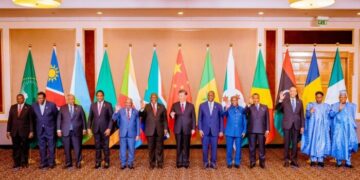Nigeria’s entertainment industry, a vibrant tapestry woven with threads of music, film, and comedy, has emerged as a significant economic force. While its exact contribution to the country’s Gross Domestic Product (GDP) is subject to debate and varying estimates, its impact is undeniable.
Brief overview
Before delving into the numbers, let’s briefly explore the key components of Nigeria’s entertainment industry:
- Nollywood: The Nigerian film industry, known globally as Nollywood, is one of the world’s largest film producers. It churns out hundreds of movies annually, captivating audiences across Africa and beyond.
- Naija Music: Nigerian music, particularly Afrobeats, has taken the world by storm. Artists like Wizkid, Davido, Burna Boy, and Tiwa Savage have achieved international acclaim and topped global charts.
- Comedy: Nigerian comedians, such as Basketmouth, AY, and Bovi, have built successful careers through stand-up comedy, skits, and television shows.
Quantifying the impact
Pinpointing the exact percentage of Nigeria’s GDP attributable to the entertainment industry is challenging due to several factors:
- Informal sector: A significant portion of the industry operates informally, making it difficult to track revenue and tax contributions.
- Data limitations: Reliable data on the industry’s economic impact is often scarce or incomplete.
- Diverse revenue streams: The entertainment industry generates revenue from various sources, including ticket sales, streaming, merchandise, brand endorsements, and live performances.
Estimates and projections
Despite these challenges, various studies and reports have attempted to quantify the industry’s contribution to the Nigerian economy:
- PwC Report (2022): This report estimates that the Nigerian media and entertainment industry contributed 2.3% to the country’s GDP in 2021. It projects that the industry will continue to grow, with annual consumer growth rates of 8.8%.
- IMF Report: The IMF projects that Nigeria’s entertainment industry will generate an estimated revenue of $10.8 billion by 2023 and account for 1.4% of GDP.
Beyond the numbers
While specific figures may vary, the entertainment industry’s impact on Nigeria extends far beyond economic contributions. It plays a crucial role in:
- Job creation: The industry generates employment opportunities for actors, directors, producers, musicians, comedians, technicians, and other professionals.
- Cultural exchange: Nigerian entertainment exports cultural values, traditions, and languages to a global audience, fostering cultural exchange and understanding.
- Social impact: Entertainment can be a powerful tool for social change, addressing issues such as poverty, inequality, and corruption.
- Brand promotion: Nigerian celebrities often serve as brand ambassadors, promoting local and international products to a vast audience.
Challenges and opportunities
Despite its significant growth, the Nigerian entertainment industry faces several challenges:
- Piracy: Piracy remains a major problem, depriving creators of revenue and hindering industry growth.
- Infrastructure: Inadequate infrastructure, such as poor internet connectivity and limited production facilities, can hamper the industry’s development.
- Policy framework: A supportive policy environment is essential to unlock the industry’s full potential.
However, the future of Nigeria’s entertainment industry is bright. With a growing middle class, increasing disposable income, and technological advancements, the industry is poised for further expansion. By addressing the challenges and capitalizing on the opportunities, Nigeria can solidify its position as a global entertainment powerhouse.
Conclusion
While the exact percentage of Nigeria’s GDP attributable to the entertainment industry may be elusive, its impact on the country’s economy, culture, and society is undeniable. As the industry continues to evolve and innovate, it is poised to become an even more significant driver of growth and development for Nigeria.






































Discussion about this post